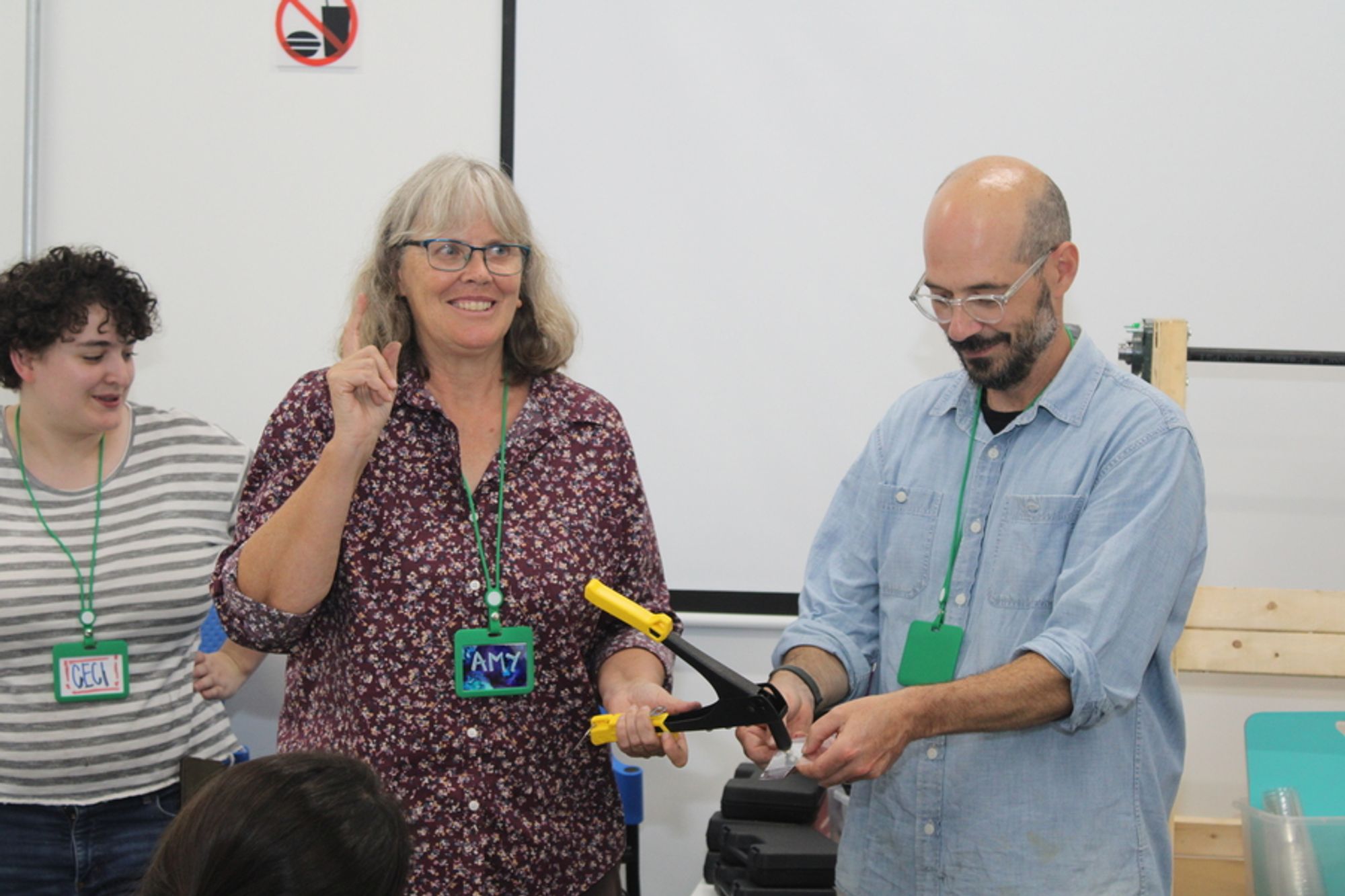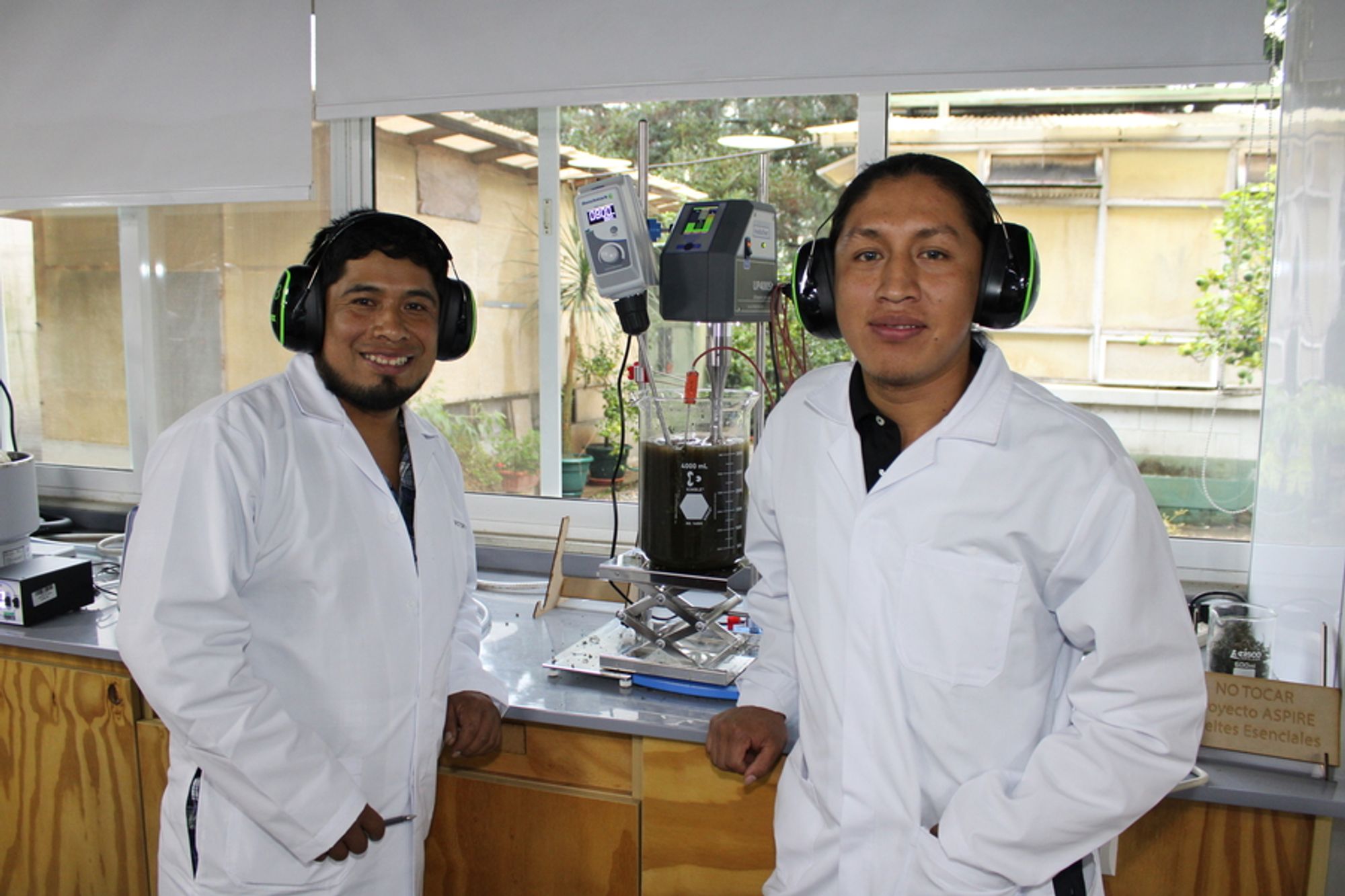

ASPIRE program brings MIT-style research, innovation, and entrepreneurship to Central America, sparking sustainable development by and for the people.
By Leda Zimmerman | D-Lab | Department of Mechanical Engineering
Nov 18, 2024
This article was originally published on MIT News on November 7, 2024.
In a new, well-equipped lab at the University del Valle de Guatemala (UVG) in June 2024, members of two Mayan farmers’ cooperatives watched closely as Rodrigo Aragón, professor of mechanical engineering at UVG, demonstrated the operation of an industrial ultrasound machine. Then he invited each of them to test the device.
For us, it is a dream to be able to interact with technology,
said Francisca Elizabeth Saloj Saloj, a member of the Ija´tz women’s collective, a group from Guatemala’s highlands.
After a seven-hour bumpy bus ride, the farmers had arrived in Guatemala City with sacks full of rosemary, chamomile, and thyme. Their objective: to explore processes for extracting essential oils from their plants and to identify new products to manufacture with these oils. Currently, farmers sell their herbs in local markets for medicinal or culinary purposes. With new technology, says Aragón, they can add value to their harvest, using herb oils as the basis for perfumes, syrups, and tinctures that would reach broader markets. These goods could provide much-needed income to the farmers’ households.
This collaboration is just one part of a five-year, $15-million project funded by the U.S. Agency for International Development (USAID) and managed by MIT’s Department of Mechanical Engineering in collaboration with UVG and the Guatemalan Export Association (AGEXPORT). Launched in 2021 and called ASPIRE — Achieving Sustainable Partnerships for Innovation, Research, and Entrepreneurship — the project aims to collaboratively strengthen UVG, and eventually other universities in Central America, as problem-solving powerhouses that research, design, and build solutions with and for the people most in need.
The vision of ASPIRE is that within a decade, UVG researchers are collaborating with community members on research that generates results that are relevant to addressing local development challenges — results that are picked up and used by policymakers and actors in the private sector,
says MIT Research Scientist Elizabeth Hoffecker, a co-principal investigator of ASPIRE at MIT, and leader of the Institute’s Local Innovation Group.
UVG, one of Guatemala’s top universities, has embraced ASPIRE as part of its long-term strategic plan, and is now pursuing wide-ranging changes based on a playbook developed at MIT — including at MIT D-Lab, which deploys participatory design, co-creation, low-cost technologies, and capacity building to meet the complex challenges of poverty — and piloted at UVG. The ASPIRE team is working to extend the reach of its research innovation and entrepreneurship activities to its two regional campuses and to other regional universities. The overall program is informed by MIT’s approach to development of research-driven innovation ecosystems.
Although lacking the resources (and PhD programs) of a typical U.S. university, UVG has big ambitions for itself, and for Guatemala.
We want to thrive and lead the country in research and teaching, and to accomplish this, we are creating an innovation and entrepreneurship ecosystem, based on best practices drawn from D-Lab and other MIT groups,
says Mónica Stein, vice-rector for research and outreach at UVG, who holds a doctorate from Stanford University in plant biology.

Victor Yaxón and Filiberto Saloj, members of the Kaqchikel Mayan farming collective, testing the industrial ultrasound machine with ASPIRE.
Photo courtesy of the ASPIRE Project.
ASPIRE can really change the way that development work and local research is done so that it has more impact,” says Stein. “And in theory, if you have more impact, then you improve environmental outcomes, health outcomes, educational outcomes, and economic outcomes.
Shifting gears at a university and launching novel development initiatives are complex challenges, but with training and workshops conducted by D-Lab-trained collaborators and MIT-based ASPIRE staff, UVG faculty, staff, and students are embracing the change. Programs underway should sound familiar to anyone who has set foot recently on the campus of a U.S. research university: hackathons, makerspaces, pitchapaloozas, entrepreneurship competitions, and spinouts. But at UVG, all of these serve a larger purpose: addressing sustainable development goals.
Continue reading on MIT News.

Sep 17, 2024
Aug 26, 2024
May 29, 2024


